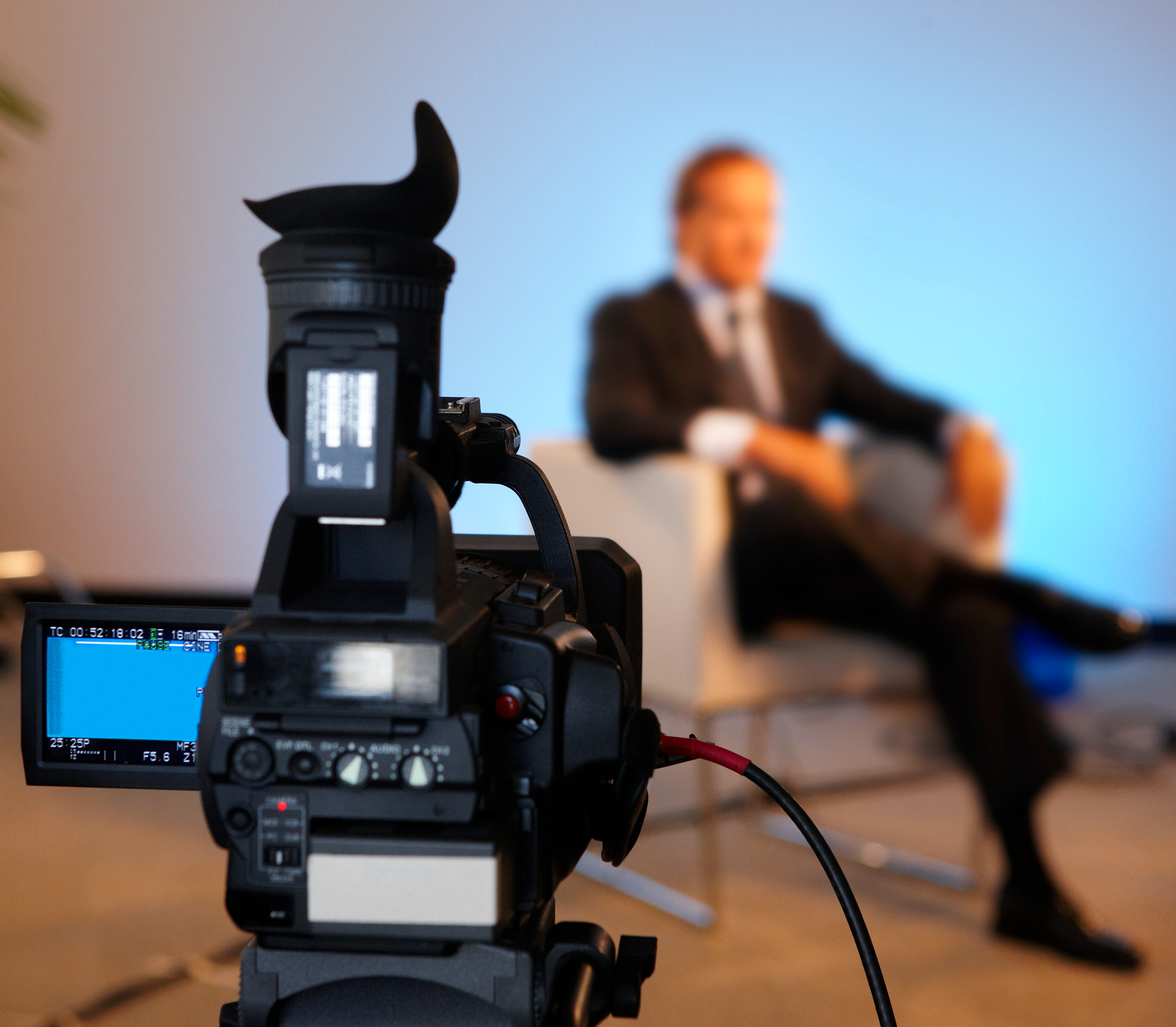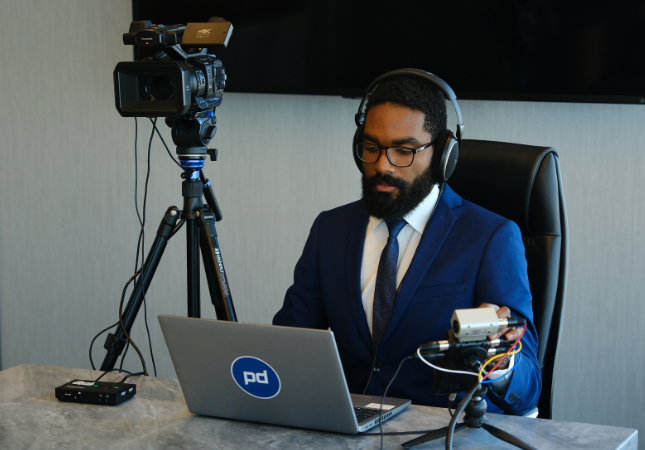How legal video depositions strengthen witness believability in legal settings
The Significance of Legal Video Depositions in Modern Legal Services: What You Should Know
Legal video depositions have actually come to be crucial in today's legal landscape. They supply a multidimensional sight of witness statements that conventional records merely can not match. By recording both non-verbal and spoken interaction, these depositions enhance the overall understanding of a witness's reliability. Nonetheless, the effectiveness of video depositions hinges on different variables, including compliance with lawful criteria and best methods (legal video depositions). Exploring these elements exposes their real importance in contemporary legal services
What Are Legal Video Depositions?
Lawful video depositions work as an important device in the lawsuits procedure. They involve tape-recording witness testaments in a video clip style, recording both verbal and non-verbal communication. This method permits lawyers to record the demeanor, expressions, and responses of witnesses, giving a richer context for the statement. Normally carried out in a controlled setting, these depositions are led by lawyers that ask concerns while a court press reporter documents the dialogue. The resulting video can be critical for test preparation, as it allows legal representatives to analyze the integrity of witnesses and improve their strategies. Furthermore, lawful video depositions can be utilized in various legal contexts, ranging from civil disagreements to criminal situations. The acoustic and aesthetic elements of video clip depositions boost the discussion of evidence, making it a necessary part in the contemporary lawful landscape. Generally, they contribute significantly to the efficiency and effectiveness of lawful process.

Advantages of Video Clip Depositions Over Traditional Approaches
Video clip depositions use countless benefits compared to standard methods of taking witness testimonies. One considerable benefit is the capacity to catch both audio and visual elements, offering a more complete document of the witness's statements. This twin format boosts clarity and allows lawyers to reference specific subtleties during trial preparation. In addition, video clip depositions help with remote participation, making it less complicated for witnesses that might be not available for in-person appearances because of geographical constraints or wellness issues.Moreover, video depositions can quicken the general deposition process, decreasing the moment and prices related to traveling and logistics. They also enhance accessibility, as tape-recorded depositions can be conveniently shared among legal groups and referenced any time. This benefit adds to much better case management and preparation. Overall, video clip depositions represent a contemporary, effective technique to collecting witness testaments, straightening with the developing needs of the lawful occupation.
The Function of Body Movement and Tone in Testimonies

In lawful video depositions, body language and tone play essential roles in sharing a witness's integrity and dependability. Nonverbal cues can provide understandings right into a witness's emotion, influencing exactly how their testimony is regarded. Recognizing the influence of these elements is vital for jurors and attorneys alike when assessing the dependability of a testament.
Nonverbal Interaction Insights
While verbal communication is usually highlighted in legal statements, nonverbal signs such as body movement and tone play an essential duty in sharing integrity and feeling. Observers of depositions may note that a witness's position, gestures, and faces can significantly affect perceptions of integrity. Constant eye get in touch with may signal confidence, while preventing stare can suggest deceit or discomfort. The tone of voice-- its pace, volume, and pitch-- can present sensations of sincerity or uncertainty. Attorneys have to be in harmony with these nonverbal signals, as they often offer vital context that complements spoken words. Comprehending these nuances can improve the efficiency of depositions and affect the result of lawful procedures.
Emotional Tone Effect
The psychological tone shared throughout lawful testaments considerably affects exactly how a witness is perceived. Body movement, singing inflections, and face expressions play important roles in shaping the narrative of a testimony. A witness exhibiting confidence via steady eye call and a calm tone can instill a sense of dependability and involvement. On the other hand, indicators of anxiousness, such as fidgeting or an unsteady voice, might lead to apprehension concerning their account. The nuances of emotional expression can influence the interpretation of realities, making it crucial for lawyers to acknowledge these signs. In video depositions, the auditory and visual components integrate, highlighting the value of psychological tone in conveying sincerity and truthfulness within the legal process.
Trustworthiness and Trustworthiness
A vital consider developing reputation and reliability throughout statements depends on the witness's body movement and tone of voice. Onlookers often rely upon non-verbal hints-- such as eye contact, pose, and motions-- to analyze a witness's sincerity. For example, a witness that preserves eye contact and shows open body language may be perceived as more truthful and dependable than one that stays clear of eye contact or shows up closed off. Furthermore, tone of voice plays an essential role; a constant, calm tone can reinforce the integrity of the testament, while fluctuations in pitch or quantity might increase uncertainties. Eventually, the mix of body movement and singing tone substantially influences just how a witness's declarations are obtained and interpreted in a lawful context.
Best Practices for Conducting Video Clip Depositions
Conducting video clip depositions calls for mindful preparation and implementation to assure a clear and reliable presentation of testimony. It is important to pick a silent, well-lit place to minimize interruptions and safe and secure optimal video clip high quality. The devices needs to be evaluated ahead of time, including video cameras, microphones, and illumination, to stay clear of technical issues during the deposition.Next, events involved have to evaluate the format and treatments ahead of time, making certain that everybody comprehends their functions. The deponent must be informed on the procedure, consisting of how to react plainly and concisely.Additionally, preserving a specialist demeanor throughout the session is essential. This includes avoiding talking over one an additional and validating that all questions are directed appropriately. It is essential to videotape the deposition in a layout that permits for very easy playback and review, preserving the stability of the statement for future usage.
Lawful Considerations and Conformity Issues
Just how do lawful factors to consider and compliance issues influence the performance of video clip depositions? Lawful experts need to browse a complicated landscape of laws, ensuring that video depositions adhere to jurisdictional regulations and criteria. Compliance with legislations worrying privacy, authorization, and tape-recording approaches is vital. Obtaining specific authorization from all events included is essential to prevent lawful repercussions.Additionally, the admissibility of video evidence in court can hinge on conformity with step-by-step requirements. Ensuring that the devices used satisfies technological criteria is also crucial, as inadequate high quality can undermine the deposition's reliability.Moreover, lawyers must know any kind of certain state laws that control video visit the website clip depositions, as these can differ greatly. Failing to resolve these considerations can not just threaten the integrity of the deposition however also influence the general situation technique, inevitably influencing the client's legal outcomes.
How Video Depositions Influence Court Understanding
While video depositions can work as effective tools in lawful procedures, their influence on court perception is substantial. The visual and acoustic aspects of video clip recordings give jurors with a more comprehensive understanding of witness disposition, reliability, and emotional responses. This multimedia approach can boost the jurors' capability to assess the dependability of testimony compared to standard text-based transcripts.Moreover, video depositions enable jurors to observe body language, intonation, and faces, all of which can impact their interpretation of the witness's statements. The existence of a witness on screen can humanize them, promoting compassion and link, which may persuade jurors' point of views. Conversely, a witness that appears untrustworthy or incredibly elusive on video may lead to adverse assumptions that influence a court's decision. Inevitably, the vibrant nature of video clip depositions plays an essential duty in shaping just how jurors analyze proof and reach their decisions.
The Future of Video Depositions in Legal Practice
As innovations in innovation remain to reshape the legal landscape, the future of video clip depositions is poised for considerable advancement. Innovations such as fabricated intelligence, online reality, and improved video clip conferencing tools are expected to enhance the deposition procedure and improve accessibility. Lawful professionals may make use of AI-driven analytics to assess witness reputation and case toughness a lot more effectively.Moreover, the combination of virtual fact might permit courts to experience immersive simulations of depositions, providing deeper context and understanding. Additionally, the trend toward remote depositions is likely to persist, providing better adaptability for customers and lawyers alike.As remote work ends up being increasingly stabilized, video depositions will likely come to be standard technique, lowering costs and time restraints connected with typical approaches. On the whole, these technical advancements assure to enhance the performance, effectiveness, and ease of access of video depositions in lawful technique, inevitably changing exactly how lawyers get ready for trial.
Frequently Asked Concerns
Just How Much Do Legal Video Depositions Typically Price?

Can Video Depositions Be Made Use Of in Any Sort Of Situation?
Video clip depositions can be utilized in different types of cases, consisting of civil, criminal, and family members law. Their versatility allows lawyers to present witness testaments efficiently, adapting to the specific needs of different legal scenarios.
What Tools Is Needed for a Video Deposition?
To conduct a video clip deposition, essential equipment consists of a premium video camera, microphone, illumination, and a trustworthy recording gadget. In addition, a computer system with modifying software application may be needed for post-production and formatting the final video.
For how long Does a Regular Video Clip Deposition Last?
A normal video clip deposition lasts between two to four hours, depending upon the intricacy of the case and the variety of questions posed. Extensive sessions might occur, yet breaks are normally included for participant comfort.

Are Video Depositions Admissible in Court?
Video clip depositions are normally acceptable in court, given they abide by legal criteria and regulations of evidence. Their usage enhances clearness and preserves witness statement, assisting in the judicial procedure during hearings and trials. Legal video depositions have come to be essential in today's legal landscape. In addition, lawful video clip depositions can be made use of in numerous legal contexts, ranging from civil disputes to criminal cases. In addition, video depositions facilitate remote engagement, making it much easier for witnesses who might be unavailable for in-person appearances due to geographical restraints or health issues.Moreover, video depositions can speed up the total deposition process, decreasing the time and expenses linked with travel and logistics. Making sure that the equipment used meets technical criteria is additionally essential, as bad high quality can weaken the useful content deposition's reliability.Moreover, attorneys have to be aware of any type of certain state legislations that govern video clip depositions, as these can differ considerably. Furthermore, the visit our website trend towards remote depositions is most likely to linger, providing higher flexibility for attorneys and customers alike.As remote job becomes increasingly stabilized, video depositions will likely come to be conventional technique, reducing prices and time constraints connected with typical methods.